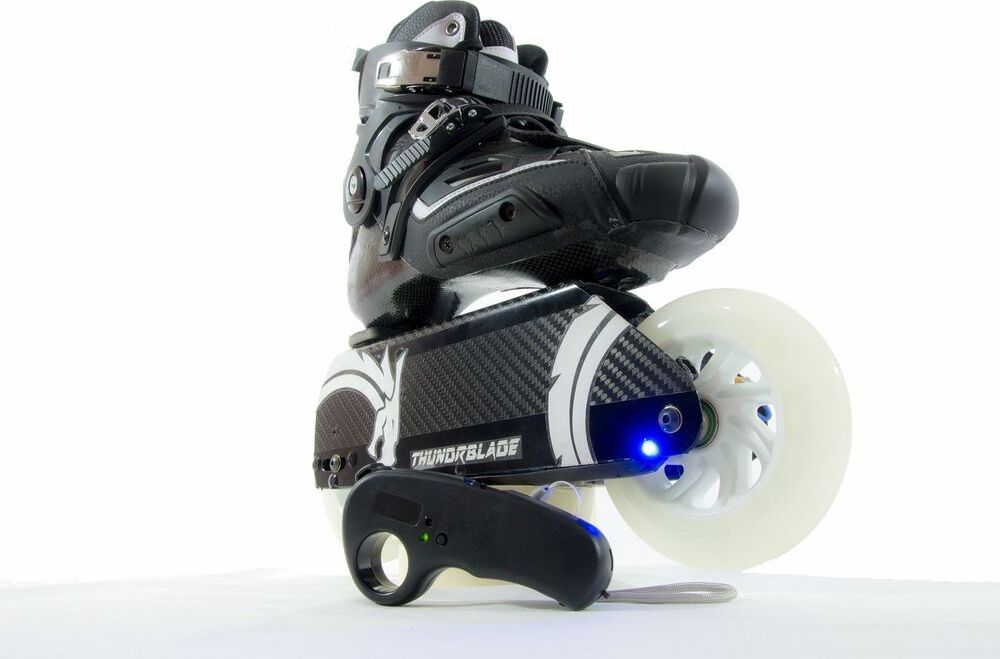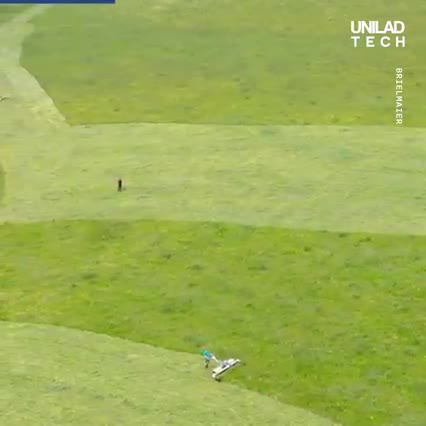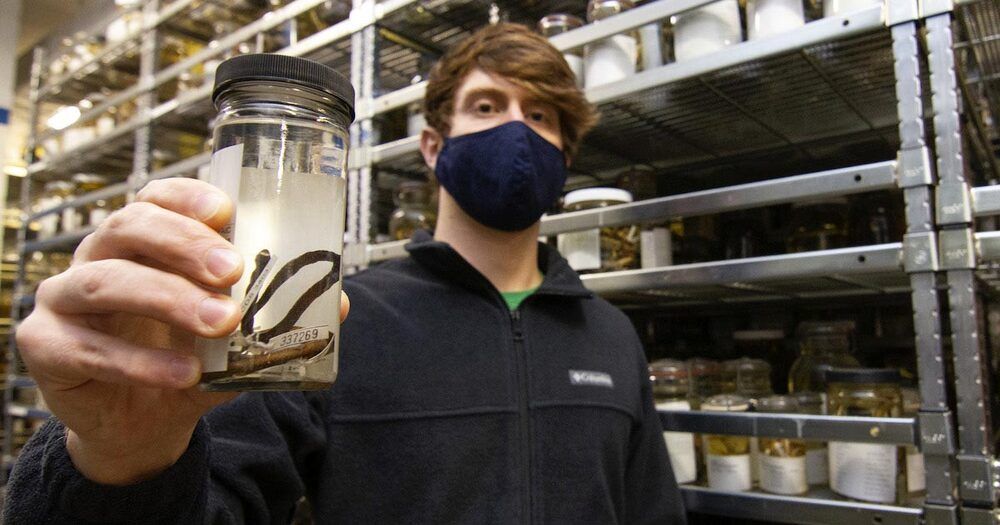Get your cutoff jean shorts and wrist guards ready. Thundrblades introduces electric, carbon fiber, glow-in-the-dark inline skates.



Who knew wood could still be useful in space. 😃
TOKYO — Japanese logging company Sumitomo Forestry and Kyoto University are planting the seeds for a 2023 launch of the world’s first satellite made out of wood.
The partners announced their intentions on Wednesday, saying the aim was basic research and proof of concept.
They have agreed to conduct research on tree growth and the use of wood materials in space. They hope to promote technology for using wood in extreme environments on Earth.


Flippy’s first iteration was already pretty impressive. It used machine learning software to locate and identify objects in front of it (rather than needing to have objects lined up in specific spots), and was able to learn from experience to improve its accuracy. Sensors on its grill-facing side took in thermal and 3D data to gauge the cooking process for multiple patties at a time, and cameras allowed the robot to ‘see’ its surroundings.
A system that digitally sent tickets to the kitchen from the restaurant’s front counter kept Flippy on top of how many burgers it should be cooking at any given time. Its key tasks were pulling raw patties from a stack and placing them on the grill, tracking each burger’s cook time and temperature, and transferring cooked burgers to a plate.
The new and improved Flippy can do all this and more. It can cook 19 different foods, including chicken wings, onion rings, french fries, and even the Impossible Burger (which, as you may know, isn’t actually made of meat, and that means it’s a little trickier to grill it to perfection).

Light travels at a speed of about 300, 000, 000 meters per second as light particles, photons, or equivalently as electromagnetic field waves. Experiments led by Hrvoje Petek, an R.K. Mellon professor in the Department of Physics and Astronomy examined ideas surrounding the origins of light, taking snapshots of light, stopping light and using it to change properties of matter.
Petek worked with students and collaborators Prof. Chen-Bin (Robin) Huang of the National Tsing Hua University in Taiwan, and Atsushi Kubo of the Tsukuba University of Japan on the experiments. Their findings were reported in the paper, “Plasmonic topological quasiparticle on the nanometre and femtosecond scales,” which was published in the Dec. 24 issue of Nature magazine.
Petek credited graduate student Yanan Dai for his foresight and work in the process.
CAPE CANAVERAL, Fla. — The International Space Station is now sporting a shiny new piece of hardware.
On Monday (Dec. 21), the first commercial airlock ever sent to the International Space Station (ISS) was attached to its exterior. The new structure is a bell-shaped airlock that is designed to transfer payloads and other materials from inside the station out into the vacuum of space.

Waray Dwarf Burrowing Snake occupies its own branch on snake tree of life.
To be fair, the newly described Waray Dwarf Burrowing Snake (Levitonius mirus) is pretty great at hiding.
In its native habitat, Samar and Leyte islands in the Philippines, the snake spends most of its time burrowing underground, usually surfacing only after heavy rains in much the same way earthworms tend to wash up on suburban sidewalks after a downpour.
Get your copy of Cyberpunk 2077 here:
http://cyberpunk.net/buy.
Sources & further reading:
https://sites.google.com/view/sources-mindupload.
The desire to be free from the limits of the human experience is as old as our first stories. We exist in an endless universe, only bound by the laws of physics and yet, our consciousness is trapped in mortal machines made of meat. With the breathtaking explosion of innovation and progress, for the first time the concept of leaving our flesh piles behind and uploading our minds into a digital utopia seems possible. Even like the logical next step on our evolutionary ladder.
OUR CHANNELS
▀▀▀▀▀▀▀▀▀▀▀▀▀▀▀▀▀▀▀▀▀▀▀▀▀▀
German Channel: https://kgs.link/youtubeDE
Spanish Channel: https://kgs.link/youtubeES
HOW CAN YOU SUPPORT US?
▀▀▀▀▀▀▀▀▀▀▀▀▀▀▀▀▀▀▀▀▀▀▀▀▀▀
This is how we make our living and it would be a pleasure if you support us!
Get Merch designed with ❤ from https://kgs.link/shop.
While Jupiter and Saturn have been stealing the headlines lately, this week on “The Cosmic Controversy Podcast,” I’m pleased to welcome planetary astronomer Heidi Hammel to talk about the ice giants Uranus and Neptune. They remain the largely forgotten gatekeepers to our outer solar system.
Renowned planetary astronomer Heidi Hammel and I chat about our solar system’s mysterious ice giant planets, Uranus and Neptune. There’s only been one flyby of these giant planets by NASA’s Voyager 2 spacecraft back in the late 1980s. Hammel, who was part of the Voyager 2 science team, explains what that mission taught us about these objects and why we need to go back.
